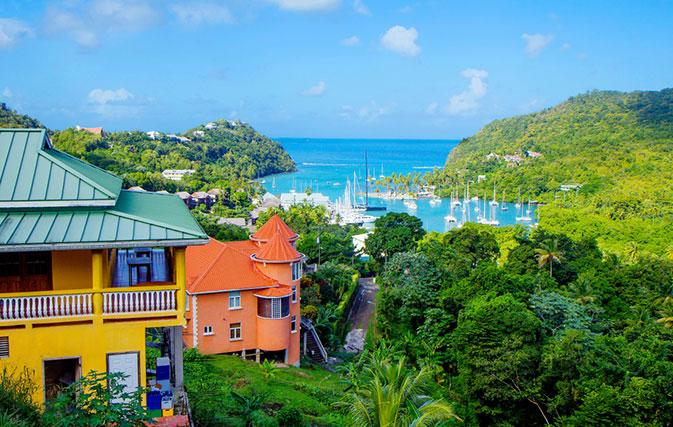CASTRIES, SAINT LUCIA — The island of Saint Lucia has announced a new tourist accommodation fee, effective this spring.
Starting April 1, 2020, stayover visitors to the destination will be required to pay a minimal fee that will be used towards destination marketing and development.
All accommodation providers (hotels, guest houses, villas, apartments, etc.) will be required to collect US$3 or $6 from their stayover guests on a nightly rate below or above $120, respectively. The providers will then remit the fees collected to the government via the Saint Lucia Tourism Authority (SLTA).
Guests at accommodation services sourced through sharing platforms such as Airbnb and VRBO will be subject to an accommodation fee of 7% on the full cost of their stay.
The new accommodation fee will be used to finance the destination marketing activities undertaken by SLTA as it promotes the destination in key markets, including Canada, the U.S., the Caribbean, the U.K. and Europe. It will also be used to support village tourism development, destination management and the development of local product in Saint Lucia.
Saint Lucia attracts up to 350,000 stayover visitors each year. SLTA has set a target of 541,000 stayover visitors by 2022, and hopes to increase airlift seat capacity and load factor on all flights to the island to 85%. SLTA’s annual budget for marketing and promotion is approximately $35 million.
According to SLTA, the business of promoting a tourism destination is becoming increasingly challenging amid greater competition. It also notes that it has become common practice for countries – including Canada, the U.S. and Italy – to finance the marketing of tourism product through an accommodation fee or levy paid for by stayover visitors.
Saint Lucia is not the first Caribbean destination to implement a fee on accommodations; Jamaica, Barbados and Belize, as well s those within the OECS including Anguilla, Antigua and Barbuda, St. Kitts and Nevis, and Saint Vincent and the Grenadines have all implement accommodation levies. These levies are often applied on a per room, per night basis and are sometimes scaled based on the type of property.
SLTA also notes that its tourist accommodation fee is among the lowest in the OECS and CARICOM, and is also low in comparison to other well-established tourist destinations around the world.
Said Dominic Fedee, Tourism Minister of Saint Lucia: “It’s always a challenge for small countries to allocate much needed resources towards tourism marketing. The accommodation fee allows tourism to pay for itself, as the tax will be levied to tourists to the island. It frees up much needed funds for healthcare, education and national security.”
SLTA is currently establishing a process to allow accommodation providers, international tour operators and booking websites to easily remit the accommodation fees they collect from stayover guests. The system has built-in mechanisms to verify that information is accurate. Given that an automated system for remitting the fees will be utilized, the cost to accommodation providers will be negligible.

